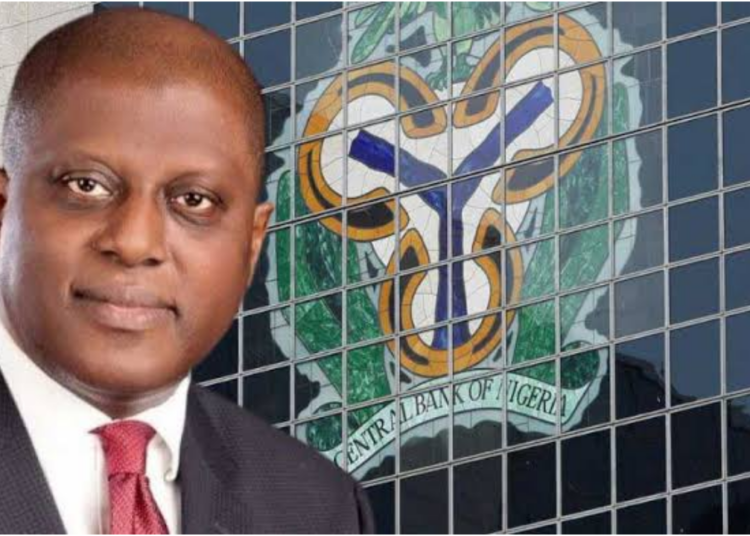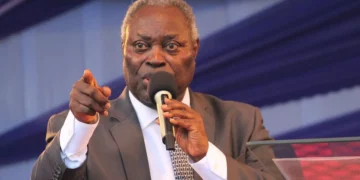When the Governor of the Central Bank of Nigeria Mr Olayemi Cardoso mounted the microphone on the floor of the House of Representatives to reveal the frightening figure of the crave for dollars (a foreign currency) in Nigeria, not many were surprised. Nigeria and Nigerians have an unquenchable thirst for dollars despite not being the official currency in Nigeria.
The substantial demand for foreign education, medical tourism (especially by those who should build the nation’s healthcare), professional services, personal travels/vacations to sights less beautiful than what you have in Nigeria, but safer, and similar needs have all combined to mount pressure on the exchange rate back home.
Like the healthcare sector, the failure of the nation’s education sector and the bias for foreign certificates in the public and private sectors in Nigeria are more reasons why the rate of Nigerians schooling abroad is notoriously high.
According to UNESCO’s Institute of Statistics, the number of Nigerian students abroad increased from less than 15,000 in 1998 to over 71,000 in 2015. By 2018, this figure had reached 96,702 students, as per the World Bank. Another report projects the number of Nigerian students studying abroad to exceed 100,000 by 2022.
A review of the presentation by Cardoso shows that between 2010 and 2020, foreign education expenses amounted to a substantial $28.65 billion, as per the CBN’s publicly available Balance of Payments Statistics. Aside from that, medical treatment abroad also incurred about $11.01 billion in costs during the same period.
According to official data, foreign exchange demand for education and healthcare has taken about $40 billion in 10 years, at the same time the total foreign reserves struggled to grow less, compared to the figure. Most regressive is the fact that the $40 billion consumed on avoidable items surpasses the total current foreign exchange reserves of the CBN. “Mitigating a significant portion of this demand could have resulted in a considerably stronger Naira today,” Cardoso rightly said.
The CBN governor’s memo to the lawmakers showed that personal travel allowances accounted for a total of $58.7 billion during the same period. Notably, between January and September 2019, the CBN disbursed $9.01 billion to Nigerians for personal foreign travel.
“That’s an indicator that Nigeria is losing it. The widespread insecurity at home is a negative factor for Nigeria. By those figures, you can see that more Nigerians are travelling for vacations and tourism abroad. That is a drain on the foreign reserves,” an economic expert, Akin Lookman said. “Besides ensuring the revival of the production sector, governments at all levels must deal with the issue of insecurity for the good of all,” he stated.
Economic experts agree with Cardosos that to bolster the inflow of US Dollars into Nigeria, the economy must earn dollars through exports, whether oil or non-oil, or by attracting foreign investments. A robust economic foundation is essential to produce goods and services that the global market is willing to pay for in US Dollars. The agreement is that when such supply surpasses demand, the exchange rate appreciates, causing the price of the dollar to fall. Unfortunately, in Nigeria, the contrary has taken place.
The Nigerian foreign exchange market is currently facing increased demand pressures, causing a continuous decline in the value of the naira. Factors contributing to this situation include speculative forex demand, inadequate forex supply due to non-remittance of crude oil earnings to the CBN, increased capital outflows, and excess liquidity from fiscal activities.
However, the CBN, in recent times, has introduced various market-friendly initiatives to reduce the pressure on the foreign exchange market and increase forex liquidity. The shift to a market-driven exchange rate was intended to create a stable macroeconomic environment and discourage currency hoarding. However, short-term volatilities are attributed to arbitrage and speculation.
To address exchange rate volatility, a comprehensive strategy has been initiated to enhance liquidity in the FX markets. This includes unifying FX market segments, clearing outstanding FX obligations, introducing new operational mechanisms for BDCs, enforcing the Net Open Position limit, and adjusting the remunerable Standing Deposit Facility cap.
The CBN governor says the apex bank is collaborating with the ministry of finance and the NNPCL to ensure that all forex inflows are returned to the central bank. “This coordinated effort will greatly enhance the bank’s FX flows and contribute to the accretion of reserves,” the governor said yesterday.
“This reform is designed to streamline and unify multiple exchange rates, fostering transparency and reducing opportunities for arbitrage. The resulting consistent and stable exchange rate will not only boost investor confidence but also attract foreign investment, elevating Nigeria’s appeal to global investors,” Cardoso said in keynote remarks at the launch of the Nigerian Economic Summit Group (NESG) 2024 macroeconomic outlook report.
Economic experts believe the CBN can do more. For instance, Professor of economics and statistics in the University of Benin, Hassan Oaikhenan said the central bank should take steps to ensure confidence in the Forex market. He also said the apex bank must collaborate with the Nigerian National Petroleum Corporation (NNPC) Limited to ensure the repatriation of the proceeds of crude oil sales. “They must ensure that the dollars realised from oil sales are remitted to the CBN and not the naira equivalent.
“The CBN’s recent order to the banks to limit the Net Open Position, NOP of their foreign currency assets and liabilities to 20 percent of shareholders funds is the best way to go in its drive to boost Forex liquidity,” Oaikhenan said.
The CBN had commissioned a forensic audit by Deloitte Management Consultant which showed that part of the headline $7 billion outstanding FX claims were fraudulent.
The apex bank under the current management has cleared $2.3 billion FX requests, with outstanding FX obligations standing at $2.2 billion. Cardoso is confident that the outstanding FX liabilities would be addressed shortly.
CEO of the Centre for the Promotion of Private Enterprise, Muda Yusuf that was a major step forward to bring back confidence into the foreign exchange market.
“We have also been told of other measures that are being taken by the CBN in conjunction with the fiscal authorities to mobilise a lot more liquidity,” he said, adding that the decision to securitise the nation’s dividend from Nigeria Liquefied Natural Gas (NLNG) and through that get some banks to give her some more funding in terms of foreign exchange is a step in the right direction.
The CBN has also said it would not pay for FX requests that were not validly constituted. The bank recently wrote authorised dealers to explain the disparities identified.
The efforts seem to be yielding the desired result as turnover in the foreign exchange market jumped to $844 million on February 3, the highest dollar trade since June 2, 2022, according to FMDQ Securities Exchange Ltd. The amount is three times more than the $266 million traded on February 1. The rise in forex earnings is attributed to the latest reforms by the Cardoso-led CBN through the unveiled reform measures that are enabling the naira to gradually find its feet against the dollar.
The CBN also removed the cap on transactions by the International Money Transfer Operators (IMTOs). Market analysts say there is better transparency in the official market and banks were mandated to offload excess dollars.
The CBN had issued a new circular on reporting foreign currency exposure to all banks aimed at curbing forex speculation and risk mitigation. In several guidelines, the central bank seeks to address suspected cases of excessive foreign currency speculation, while highlighting its concerns over the growing trend of banks holding large foreign currency positions.
“The Central Bank of Nigeria (CBN) has noted with concern the growth in foreign currency exposures of banks through their Net Open Position (NOP). This has created an incentive for banks to hold excess long foreign currency positions, which exposes banks to foreign exchange and other risks. Therefore, to ensure that these risks are well managed and avoid losses that could pose material systemic challenges, the CBN issues the following prudential requirements,” the CBN said in a circular that was signed by its director, trade & exchange department, Hassan Mahmud and his banking supervision colleague Rita Ijeoma Sike.
In a move to protect the foreign reserves from further depletion, the central bank asked all authorised dealers in the foreign exchange market to desist from reporting inaccurate and misleading information on transactions concluded in the financial market.
All eyes are all on the CBN to see if the ongoing reforms to cut the pressure on the forex market will produce sustainable outcomes and permeate the economy.
We’ve got the edge. Get real-time reports, breaking scoops, and exclusive angles delivered straight to your phone. Don’t settle for stale news. Join LEADERSHIP NEWS on WhatsApp for 24/7 updates →
Join Our WhatsApp Channel










